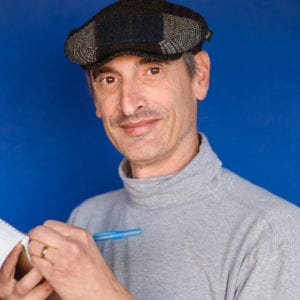Human Resources
Lee Chottiner
Before the tornado outbreak that ravaged much of western Kentucky, I had no idea that there was any kind of Jewish presence in the towns that were hardest hit.
Since the tornados … well, you might say that I have become educated.
Not only have I spoken to Jews who grew up in those towns or still live there, but I have learned that they had a very real presence there. Even though they traveled to Paducah or Union City, Tennessee, for synagogue, they called these small towns home, opening businesses, raising kids, watching baseball games.
Baseball games?
I have just learned (forgive me, I’m, still a relative newcomer to Kentucky) that a Major League Baseball club used to hold spring training in the town of Dawson Springs, population 2,452 (before the tornados that killed 14 people there).
And not just any ball club, my ball club: the Pittsburgh Pirates, the club I grew up following, and still do.
A member of Temple Shalom enlightened me during the recent Chinese Dinner Shabbat. (He knew of my love for the Bucs, their horrendous streak of losing seasons notwithstanding.)
The Pirates held spring training at Riverside Park, in Dawson Springs, a spa and resort town at the time, from 1915 to 1917. Other major and minor league baseball teams also trained or played exhibition games there. But the Pirates are the ones best recalled.
Truthfully, the news shouldn’t have been so surprising. Not only do the Pirates have a Jewish connection, but they also have a Kentucky Jewish connection.
For years, the Pirates were owned by a man named Barney Dreyfuss – no slouch of an owner, he. Dreyfuss, who owned the Pirates from 1900 to 1932, won six National League pennants and two World Series crowns (out of four appearances).
He also owned the Louisville Colonels, of the long-defunct American Association and later the National League, from 1890 to ’99.
He invented the first World Series in 1903, built the first steel and concrete ballpark in the Majors – Forbes Field – in 1909 and was inducted into the Baseball Hall of Fame in 2008.
And he’s a son of Kentucky.
Born in Freiburg, Grand Duchy of Baden (before German unification) in 1865, Dreyfuss immigrated to the United States when he was 16 to avoid conscription into the German Army. He settled in Paducah, where he worked with the Bernheims (yes, those Bernheims), a family to which he was related by marriage through his father’s sister.
Dreyfuss moved to Louisville in 1888, and in a few years, became a clerk to an officer of Bernheim Brothers, creators of I. W. Harper bourbon.
But, professional baseball, which was still in its infancy, would be his true calling. He organized amateur teams among distillery workers before acquiring part- and eventually full, ownership of the Colonels. When the National League contracted in 1899, he purchased part of the Pirates and moved his best players, including future Hall of Famer Honus Wagner, to Pittsburgh.
The rest, as they say, is history.
Barney Dreyfuss was way before my time, though I did meet and interview his grandson when he finally made it into the Hall. But like any real Pirates fan, particularly the Jewish ones, I was proud of him. I still fondly remember seeing my first-ever Bucs game in 1968 – in the ballpark that Dreyfuss built.
Pride notwithstanding, I never knew the club trained in Kentucky – a gap in my education. It’s not surprising that a team owner who came of age in Kentucky should have brought his club here to train. It’s just sad that it took a tornado for me to appreciate this great piece of Kentucky history.
(Lee Chottiner is the editor of the Jewish Louisville Community.)



